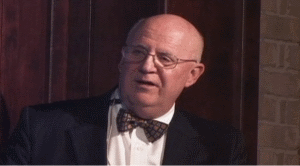Someone asks: "When did the early church actually make a shift from the Sabbath (Saturday) to Sunday? We see disciples meeting on Sunday in Acts 20, and a reference by John to the Lord's Day in Rev 1. Was this change commanded by God, or was it to celebrate the Resurrection and to honor Him because of that?" * * * The historical data is found in various books on the topic. Scripture gives no hint that God commanded Sunday observance. It seems strictly to have been a commemorative decision by early Christians celebrating the resurrection of Jesus, and perhaps also the descent of the Spirit on … [Read more...]
Archives for 2012
TITHING
GracEmail subscribers in several countries and in different denominations have asked what the Bible teaches about tithing, and whether Christians are required to give one-tenth of their income to the church. * * * The Law of Moses required the Jews to set aside a tithe (one-tenth) of their agricultural produce to support the Levites, the priestly tribe that did not receive a land inheritance. The Levites then gave a tenth from their tenth to support the priests (Lev. 27:30; Num. 18:21-29). The tithe also supported aliens, orphans and widows throughout Israel and provided a feast to celebrate … [Read more...]
One Life, Death & Judgment
"As It Is Appointed Unto Men... "And as it is appointed unto men once to die, but after this the judgment: so Christ was once offered to bear the sins of many: and unto them that look for Him shall He appear the second time without sin unto salvation (Hebrews 9:27-28). What a familiar text -- but how often its chief meaning has escaped notice through sheer familiarity! You live once, die once and are judged once. That is the author's first statement, and it is very important. But it is not his chief point in this passage. And if that primary point is not given first importance, the … [Read more...]
THE ‘WORMS’ AND ‘FIRE’ OF HELL
A Bible student writes, "I am sympathetic to your position of total destruction instead of everlasting conscious torment. But how do you explain the verse which says: 'where the worm dies not and the fire is not quenched?'" * * * The phrase you cite first comes from Isaiah 66:24, which portrays the righteous going out of the city of Jerusalem, following God's final judgment on the wicked, and viewing their dead corpses in the city "dump" -- where maggots ("the worm") and smouldering garbage fire ("the fire") race to consume them. It is a scene, Isaiah says, of disgust or abhorrence (v. 24). … [Read more...]
WHAT MAKES A CHURCH OF GOD?
Text: I Corinthians 1: 1, 2. Introduction No greater description could be given a group of disciples than that ascribed by Paul in addressing the Corinthians. "To the church of God at Corinth," he said. Not only are they so put under the watchful care of the Almighty, but they are identified as in the stream of "The People of God." For though they are Gentiles, and formerly "no people," this term "the church of God" is the Greek equivalent of the expression regularly used in the Old Testament for God's covenant nation Israel. Through the Jewish Messiah, these Gentiles have "found mercy," … [Read more...]
HEBREWS: ANCIENT ENCOURAGEMENT FOR BELIEVERS TODAY
We know little about the original setting of the Book of Hebrews. We do not know its author, audience or the location of either. We cannot say when it was written or exactly why. We do know that it was written to professing believers who were experiencing a crisis of faith. Their crisis had several possible causes, including persecution, weariness, temptation, boredom and lack of knowledge (10:32-34; 3:12-13; 5:12-14; 6:11-12; 10:32-34; 12:3). With second thoughts about their commitment to Jesus, they were thinking longingly about a comfortable and familiar past. We do not know if the first … [Read more...]
THE MESSIANIC SECRET
A gracEmail subscriber asks why Jesus instructed his disciples in Luke 9:21 not to tell anyone that he was the Messiah, although he already had been healing people and performing miracles. * * * In this passage Jesus has just prompted the acknowledgement from his disciples that he is the Christ of God -- the Anointed "Messiah" through whom the prophets David, Daniel, Jeremiah and others predicted that God would usher in his kingdom (Lk 9:18-20). But neither the disciples nor the Jews in general could then comprehend that the Messiah would be rejected and murdered, or that his glorious … [Read more...]
SOME LESSONS FROM DAVID & GOLIATH
Introduction The story of David and Goliath is familiar to most of us from childhood. Read First Samuel 17, or tell the story, as an introduction to this lesson. We will note some modern principles to be learned from this favorite Old Testament story. Body I. While Israel waited to grow a Goliath, God was developing a David on the hills of Bethlehem. A. God has always taken common people and used them for great things. 1. Amos was a herdsman when God called him (Amos 7:14, 15). 2. Moses was a shepherd in the wilderness (Exodus 3:1-10). 3. Elisha was busy plowing when Elijah called him … [Read more...]
JESUS AND THE HEALING OF HUMAN BROKENNESS
Restoring the Ministry of Christian Healing Prayer***Three Classes presented at the 50th Annual Pepperdine University Bible Lectures April 27-30, 1993 INTRODUCTION We live in a broken world. Does God see all this? Does he care? Is he uninterested in such "worldly" matters? Does the Bible offer any help? If so, do we -- the church? Through much of the past 2,000 years, the church has seemingly said "No." However, the Bible provides us with astounding good news! God does see and care -- he does wish to be involved. And he invites our participation in the healing of his broken … [Read more...]
BAPTISM — A CLOSER LOOK ONE BODY IN CHRIST
All in the familyI. Background in earlier lessons: we are one because of a new nature and new relationships. A. We have a new basis for relating to God. 1. The core of the gospel is that Jesus became our personal representative and substitute in all his doing and dying, so that God views us now in Christ and not in ourselves apart from him (Isa. 42:6; 49:8; Jer. 23:5-6; 33:15-16; 1 Cor. 1:30-31; Phil. 3:3-11). 2. Jesus publicly accepted this representative role as Lamb of God at his baptism, symbolically taking up the sins of the people to carry them to the cross (Lk. 12:49-50; … [Read more...]


